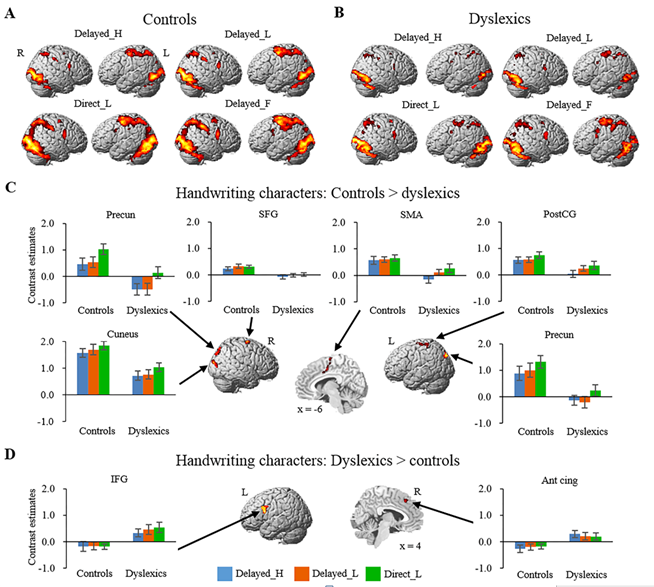
Newsroom
Reading is key to human communication and literacy development. Developmental dyslexia is a neurological learning disability characterized by significantly low reading achievement based on chronological age, despite adequate intelligence and socioeconomic opportunity. It affects approximately 5%-17% of school-aged children. Ample evidence has shown that handwriting disability is a persistent problem in dyslexia (e.g., more pauses between words and within words). Handwriting difficulty in dyslexia may become more severe due to the dramatic reduction of handwriting practice in daily life in the digital age.
Handwriting is a complex process involving linguistic, attentional and perceptual-motor processes. The neural correlates of handwriting deficits remain largely unknown, however, as well as the extent that handwriting deficits share common neural bases with reading deficits in dyslexia.
To fill this research gap, Dr. YANG Yang from the Institute of Psychology of the Chinese Academy of Sciences and his colleagues conducted a study to examine brain activity during handwriting and reading tasks in Chinese dyslexic children and age-matched controls.
Compared to controls, dyslexic children exhibited reduced activation during handwriting tasks in brain regions supporting sensory-motor processing (including supplementary motor area and postcentral gyrus) and visual-orthography processing (including bilateral precuneus and right cuneus). Among these regions, the left supplementary motor area and the right precuneus also showed a trend of reduced activation during reading tasks in dyslexics.
Moreover, increased activation was found in the left inferior frontal gyrus and anterior cingulate cortex in dyslexics, which may reflect more efforts of executive control to compensate for the impairments of motor and visual-orthographic processing.
Finally, dyslexic children exhibited aberrant functional connectivity among brain areas for cognitive control and sensory-motor processes during handwriting tasks.
These findings suggest that handwriting deficits in dyslexics are associated with functional abnormalities of multiple brain regions implicated in motor execution, visual-orthographic processing and cognitive control, providing important implications for the diagnosis and treatment of dyslexia.
This study entitled "The brain basis of handwriting deficits in Chinese children with developmental dyslexia" has been published on Developmental Science on July 20.

Brain activation results in the handwriting tasks. (Image by YANG Yang)
